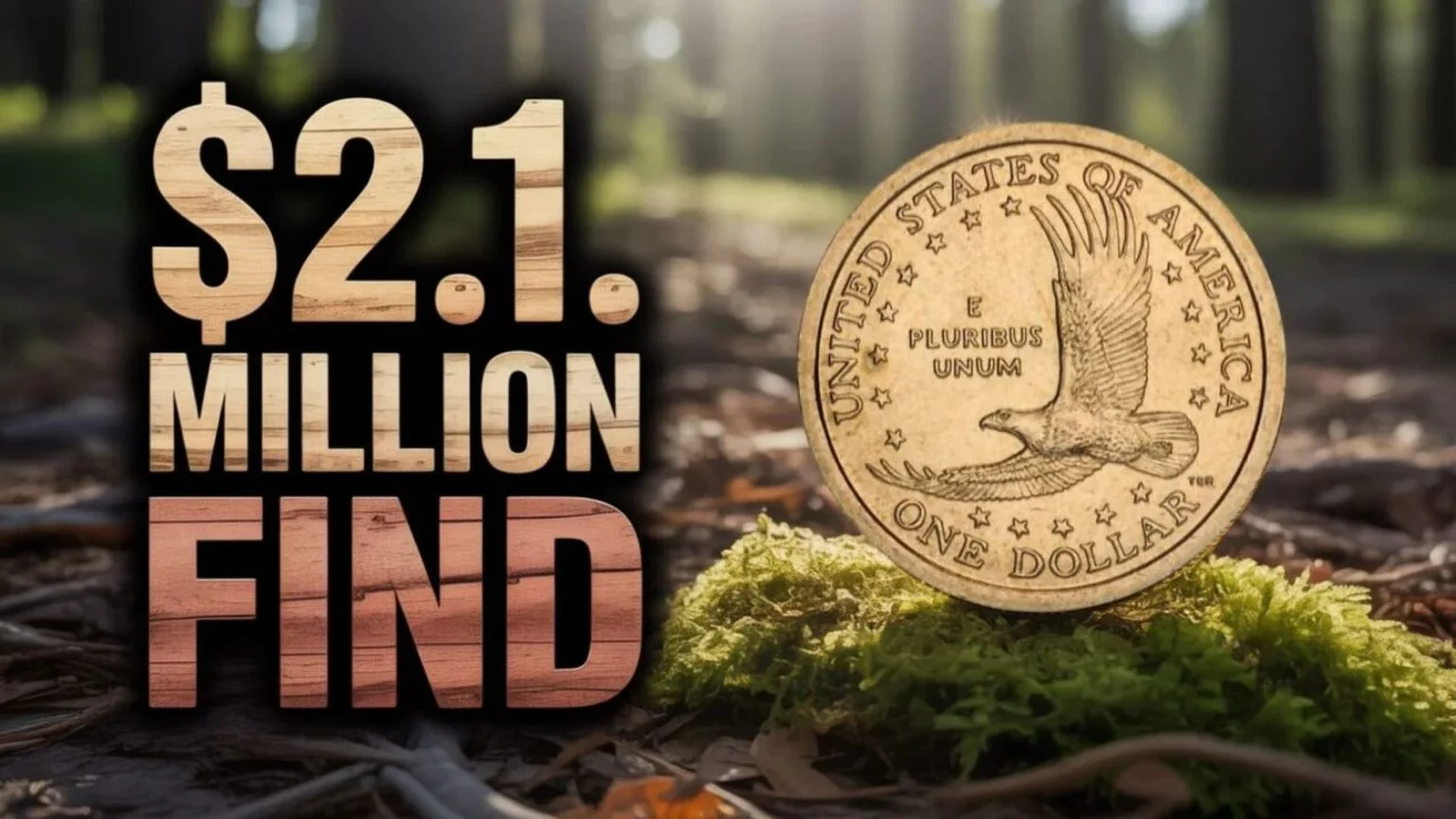What if a coin sitting in your change jar could be worth more than a luxury home? That’s the story behind the rare Sacagawea dollar, a modern coin that shocked the coin-collecting world when one error variety sold for $2.1 million. Originally launched in 2000, the Sacagawea dollar celebrates the Shoshone woman who guided Lewis and Clark on their historic expedition. While most examples are worth just $1, a handful of rare versions can turn pocket change into life-changing treasure.
This guide explains what makes these coins special, how to spot them, and why collectors are paying record-breaking prices.
What Makes the Sacagawea Dollar Special?
- First issued in 2000 to honor American women in history
- Designed by Glenna Goodacre (obverse) and Thomas D. Rogers Sr. (reverse)
- Features Sacagawea carrying her infant son, Jean Baptiste
- Minted with a copper core coated in manganese brass, giving it a golden color
While over 800 million were minted in the first year, only a small number contain minting errors that make them extremely valuable.
Rare Sacagawea Dollar Varieties
The Wounded Eagle
- Key Feature: A line across the eagle’s chest, resembling a wound, caused by a die crack
- Value: $50 to $5,000 in circulated grades
- Record: One example sold for $2.1 million in 2021
The Cheerios Dollar
- Key Feature: Extra tail feather detail on the eagle
- Background: About 5,500 were placed in Cheerios cereal boxes as a U.S. Mint promotion
- Value: $2,000 to $10,000 depending on condition
- Record: A graded MS-68 example sold for $25,000
The Mule Error
- Key Feature: Mismatched design—Sacagawea obverse paired with a Washington quarter reverse
- Rarity: Fewer than 20 known
- Value: $50,000+ with a record of about $100,000
Overlapped Dies
- Key Feature: Blurred or doubled images from misaligned dies
- Value: $100 to $1,000, with top-condition coins reaching $7,000
Quick Comparison Table
| Variety Name | Key Feature | Estimated Value | Record Sale |
|---|---|---|---|
| Wounded Eagle | Scratch-like line on eagle’s chest | $50–$5,000 | $2.1M (2021) |
| Cheerios Dollar | Extra tail feathers on eagle | $2,000–$10,000 | $25,000 (MS-68) |
| Mule Error | Quarter reverse on Sacagawea obverse | $50,000+ | $100,000 |
| Overlapped Dies | Blurry/doubled details | $100–$1,000 | $7,000 |
How to Spot a Rare Sacagawea Dollar
- Check the date: Focus on coins from the year 2000 with mint marks “P” (Philadelphia) or “D” (Denver)
- Inspect the eagle: Look for extra lines, doubled feathers, or odd details
- Check the edge: Most Sacagawea dollars have plain edges, but unusual grooves can indicate a mint mix-up
- Condition matters: Coins in uncirculated or mint state are worth the most
- Use tools: A magnifying glass or 10x loupe helps catch tiny errors
Tips for Collectors and Sellers
- Get it graded: Services like PCGS or NGC confirm authenticity and maximize value
- Sell strategically: Auctions often bring higher prices than quick online sales
- Avoid cleaning: Polishing damages coins and lowers their value
- Stay informed: Join coin forums, attend shows, and track auction prices
FAQs
Q1. Why is the Sacagawea dollar rare if millions were minted?
Only a few error varieties exist, making those versions valuable.
Q2. How much is a regular Sacagawea dollar worth?
Most are worth $1, but uncirculated rolls may bring a small premium.
Q3. Can I still find these rare coins in circulation?
Yes, though the chances are slim—it’s possible in bank rolls or old collections.
Q4. What’s the most expensive Sacagawea dollar sold?
The Wounded Eagle variety sold for $2.1 million in 2021.
Q5. Where should I sell a rare Sacagawea dollar?
Certified auction houses or trusted dealers are the safest places.
Conclusion
The story of the $2.1 million Sacagawea dollar proves that even modern coins can become extraordinary treasures. With billions of coins in circulation, your next find could be hiding in loose change, a family collection, or even a forgotten jar of coins. Whether you’re a collector, investor, or casual hobbyist, take a closer look—you might just uncover a piece of history worth a fortune.

